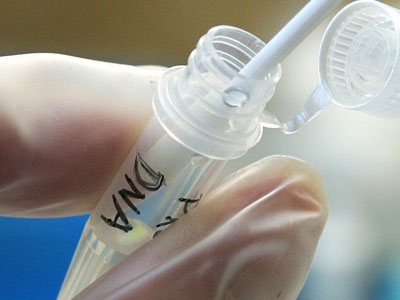The National Health and Medical Research Council (NHMRC) has released new advice for consumers, after genetic tests have become increasingly available on the internet and cheaper to buy.
NHMRC chief executive Professor Warwick Anderson said patients and consumers need to “be aware of the implications of using genetic tests which may preclude the advice or involvement of their doctor”.
“Given phenomenal advances in genetic technologies, more and more companies are offering direct-to-consumer genetic tests,” Professor Anderson said.
“These are being taken up by an increasing number of people who are curious about their ancestry or interested in learning about their predisposition to certain health conditions.”
He warned while the tests may be cheaper online, there was no guarantee of their quality.
“Direct-to-consumer genetic tests are often offered by companies based overseas which may not meet Australian standards for quality and reliability for medical laboratory testing,” he said.
“Consumers should be cautious about the accuracy of some of these tests and be mindful that while genetic testing may offer an indication of predisposition to a particular health condition, results should not be treated as a definitive diagnosis.”
Important factors to consider: NMHRC
A quick search revealed that it is very easy for Australians to order genetic tests for hereditary haemochromatosis and a DNA paternity test.
One site claims it “is the trusted name in the Australia for premium DNA testing services”.
“With the latest state-of-the-art technology and over 100,000 cases processed annually, [it] is the reliable choice for Australia (sic) clients and has provided Australia clients with the highest standards in laboratory testing, with the latest technology, strictest quality control and unprecedented service and reliability,” the site said.
DNA paternity tests on the site cost up to $270, while “forensic DNA” tests can cost more than $1,000.
Samples of saliva are sent to the company’s laboratories and completed in up to five days. Patients receive results via email with a further copy sent by mail.
According to the NMHRC, patients need to consider:
- Companies offering DTC genetic tests are mostly located overseas and may not meet the quality standards that apply in Australia
- A person’s genes are not the only things that determine their future health, and the results of genetic tests need to be considered in the context of other factors such as lifestyle, environmental factors and normal ageing
- Some DTC companies may sell information about you and your genetic results to pharmaceutical and other companies
- Obtaining your own genetic test results may reveal unexpected information about you and your blood relatives. This information may also have implications for obtaining risk-rated life insurance
The new guidelines were developed by NHMRC’s Human Genetics Advisory Committee, and both documents are available from the NHMRC website.
